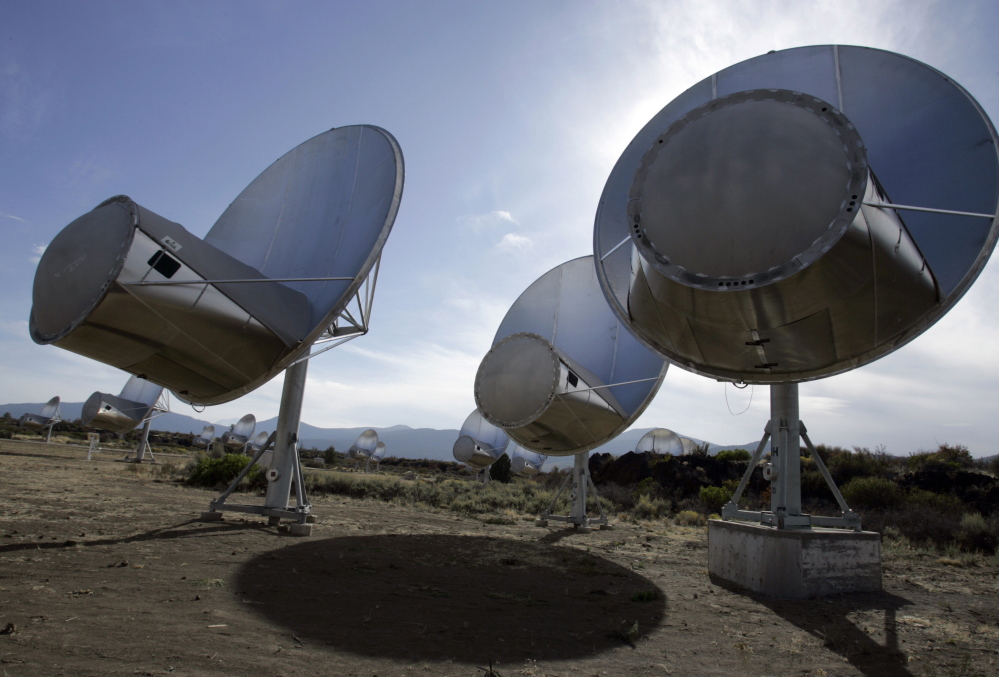SAN JOSE, Calif.— Astronomers have their own version of the single person’s dilemma: Do you wait by the phone for a call from that certain someone? Or do you make the call yourself and risk getting shot down?
Instead of love, astronomers are looking for alien life, and for decades, they have sat by their telescopes, waiting to hear from E.T. It didn’t happen, so now some of them want to beam messages out into the void and invite the closest few thousand worlds to chat or even visit.
Other scientists, including Stephen Hawking, think that’s crazy, warning that instead of sweet and gentle E.T., we may get something like the planet-conquering aliens from “Independence Day.” The consequences, they say, could be catastrophic.
But calling out there ourselves may be the only way to find out if we are not alone, and humanity may benefit from alien intelligence, said Douglas A. Vakoch, whose title is director of interstellar message composition at the SETI Institute in Mountain View, California. SETI stands for Search for Extraterrestrial Intelligence, and until now it’s been mostly a listening-type thing.
This dispute – which mixes astronomy, science fiction, philosophy, the law, mathematics and a touch of silliness – broke out Thursday and Friday at a convention in San Jose of the American Association for the Advancement of Science.
And this week several prominent space experts, including Space X founder Elon Musk and planet hunter Geoff Marcy, started a petition cautioning against sending out such messages, saying it is impossible to predict whether extraterrestrial life will be benign or hostile.
Vakoch is hosting a separate conference Saturday at the SETI Institute on the calling-all-aliens proposal and what the messages should say.
The idea is called active SETI, and according to Vakoch would involve the beaming of messages via radar and perhaps eventually lasers.
We’ve been inadvertently sending radio and TV signals out to the cosmos for some 70 years – though less now, with cable and satellite sending shows directly down to Earth. In fact, each day a new far-off planet may be just now catching the latest episode of the 1950s sitcom “I Love Lucy,” said astronomer Seth Shostak, a senior astronomer at the SETI Institute.
Send questions/comments to the editors.



Success. Please wait for the page to reload. If the page does not reload within 5 seconds, please refresh the page.
Enter your email and password to access comments.
Hi, to comment on stories you must . This profile is in addition to your subscription and website login.
Already have a commenting profile? .
Invalid username/password.
Please check your email to confirm and complete your registration.
Only subscribers are eligible to post comments. Please subscribe or login first for digital access. Here’s why.
Use the form below to reset your password. When you've submitted your account email, we will send an email with a reset code.